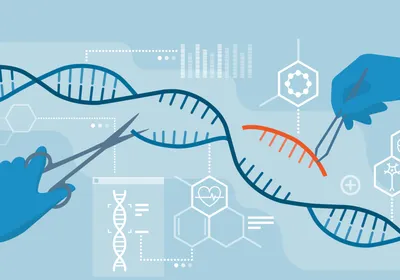The gene-editing technique CRISPR-Cas9 has received ample attention for its potential to improve human health via gene therapy. Today (August 10), an international team of researchers announced a step toward giving it an entirely different role in medicine: enabling xenotransplantation—in this case, of pig organs into humans. As reported in Science, the group used CRISPR to disable viral DNA lodged in the pig genome and then grew healthy piglets from the edited cells.
Pig organs are about the same size as humans,’ so some scientists and transplant surgeons see them as candidates to solve the problem of a shortage of organ donors, reports The New York Times. Previous experiments have worked toward customizing pig organs to make them compatible with human recipients. But one concern has been the potential for the zombies of pig infections past, known as porcine endogenous retroviruses (PERVs), to reanimate and infect human organ recipients.
The ...





















